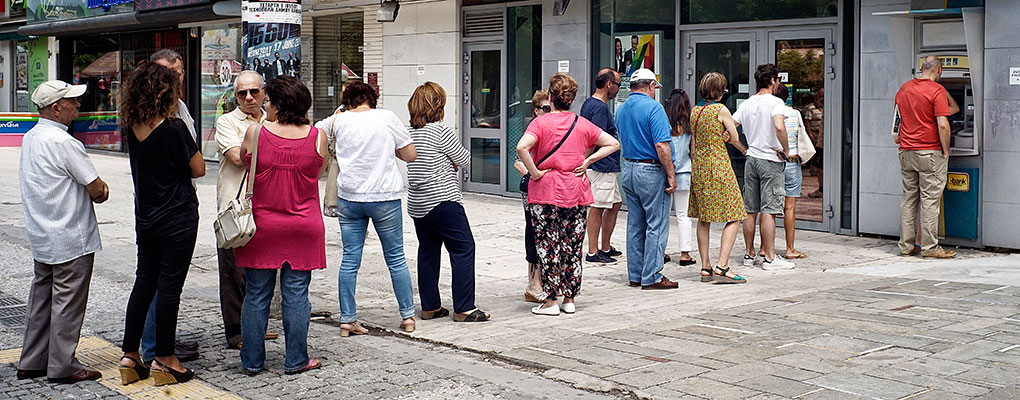
After five weeks, the Athens Stock Exchange (ASE) was opened on August 3 for early trading. In an indication of the recent battering to the Greek economy, shares nose-dived by 22.8 percent. The country’s biggest banks, National Bank, Alpha Bank, Piraeus Bank, and Eurobank Ergasius nose-dived by the daily limit of 30 percent. The prices of utilities and state-owned companies also plummeted, while export driven companies experienced less of a shock.
With its own currency, greater autonomy and less pressure from xenophobic neighbours, Greece may actually have a chance of climbing out of the spiralling crises it currently battles
To stem capital flight, the capital markets committee has banned short-term selling.
Given that financial institutions comprise 20 percent of the ASE, experts fear that the banks will bring down the rest of the stock market. State intervention in the banks is not expected at present, although they will require recapitalisation.
The news follows shortly after data revealed that Greek manufacturing contracted considerably in July as a result of the three-week bank closure, which had caused havoc with orders and supply chain. The Markit PMI for manufacturing dropped from 46.9 to 30.2 – the lowest rate since records began in 1999 and well below the 50 mark which indicates growth.
While a drastic decline was expected on the day that the ASE reopened, it is possible that even slow recovery is not yet in sight as capital controls continue to impair the liquidity of the stock market. Currently, local investors can only purchase shares with cash from overseas or money they have at hand. Capital remaining in security firms or earned from selling security can also be used, while foreign investors on the other hand can trade freely.
The situation in Greece goes from bad to worse as pressure mounts to agree new bailout conditions and discord exacerbates within the incumbent regime. In 2014, Greece ended a six-year long pattern of recession, only to return to this testing path in 2015. As patience runs thin from the country’s principle financier, the IMF, relations with eurozone member states are even more strained, particularly with Germany. Greece has become the foe within Europe, blamed for incompetence and viewed as a burden. As it continues to lose friends and favour, it seems that the time has come to bid farewell to the troublesome euro. With its own currency, greater autonomy and less pressure from xenophobic neighbours, Greece may actually have a chance of climbing out of the spiralling crises it currently battles. Taking heed from the lessons learned by Iceland, having its own currency may be the only way to recover, without causing more social distress and unrest to the weary Greek people.


